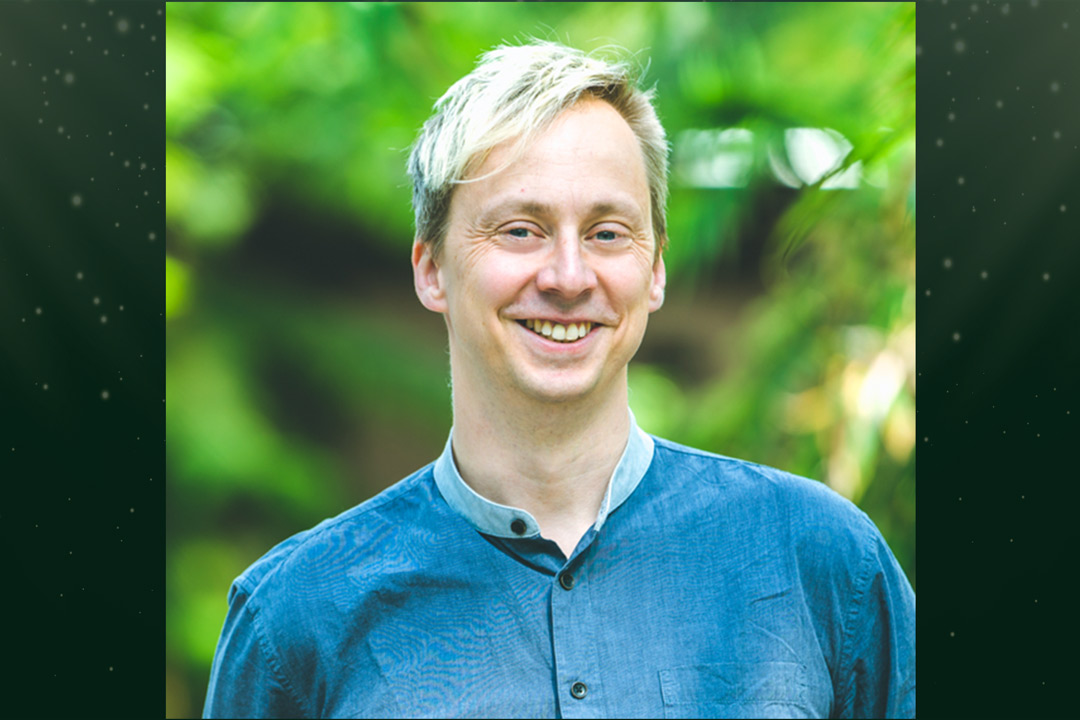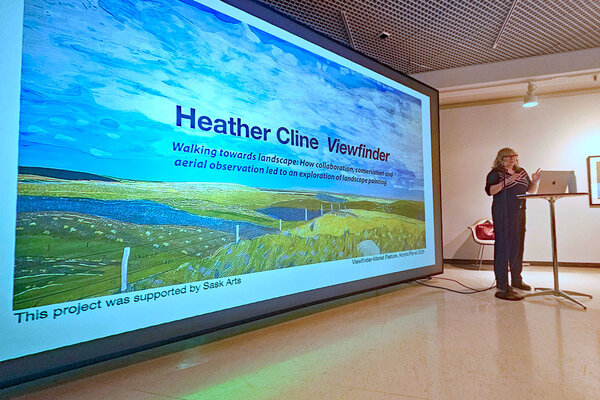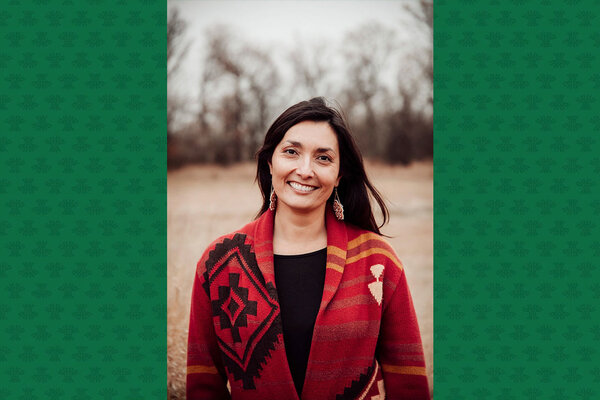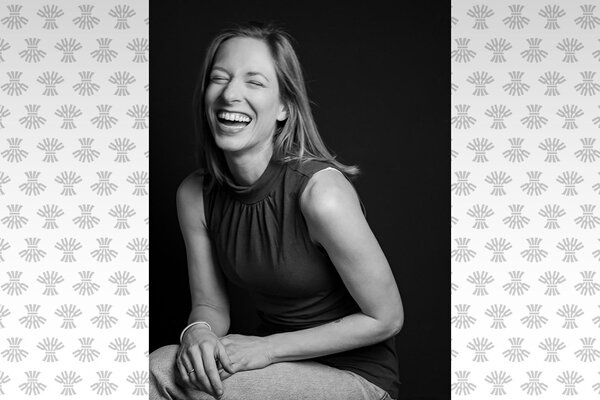
Three questions with Saskatchewan tech leader Aaron Genest
Genest (BSc’07, PhD’13) is one of four Alumni of Influence Award recipients from the College of Arts and Science
As someone who has made mentorship a major part of his life, Dr. Aaron Genest (BSc’07, PhD’13) knows that good advice is rarely simple or one-size-fits-all.
One of the most universal truths he’s found: the parts of your education that will help the most will not be the parts you expect.
For his mentorship work and for his leadership in Saskatchewan’s tech industry, Genest—a University of Saskatchewan (USask) computer science graduate—is one of four recipients of a 2024 Alumni of Influence Award from the College of Arts and Science.
Genest manages an international team of engineers at Siemens EDA in Saskatoon, a technology outfit responsible for software and hardware essential to the design of the silicon chips that make the modern world work. He is also president of the industry advisory organization SaskTech, a member of the USask Senate, a frequent advisor to Saskatchewan’s post-secondary institutions, and a mentor to rising tech talent through several local incubator and entrepreneurship programs.
The College of Arts and Science asked Genest a series of questions about his experience at USask and his advice for current students. This interview has been edited for length and clarity.
Q: What is your favourite memory about your time in the College of Arts and Science?
I think my favourite memory is a moment on the first day of summer in a graduate lab, when all the summer students would come in, and I was a senior graduate student.
You come to university as a student and you have your own objectives, and your supervisor is somebody who’s guiding you and sometimes judging you for what you’re doing. But at that moment, the idea of a graduate lab in a university as a centre of progressive learning—and the idea that it’s basically incubating all of the talent that’s going to go out and make the change in the world, all around the world—became apparent to me. I’d never really had the sense before of that continuity of students moving through those labs, and the labs becoming more effective at doing what they were doing, and that every successive wave of students coming out was more prepared than the previous one. And I remember standing in a circle of people—because that’s how Carl Gutwin, my supervisor, started the mornings—while everyone was talking about what they were going to be doing that week, and the potential of the moment was so exciting.
Looking back on it, that’s a favourite memory because it was a moment of personal growth as well as a realization of the value of the university.
Q: How did your Arts and Science education help you in your career?
Unexpectedly. As a university student, you often feel like you’re training for the next steps in your life and that the things that you’re learning are going to be pieces of knowledge that you bring to bear on what’s going to come after.
My primary job now is to guide people through their early career stage at our company and to figure out how to do that very well. And the first thing that we work on with people coming into a new job is to tell them that nothing that they know is actually particularly of value to the company, because we already know all of that stuff. What we want instead is their potential to be able to learn. And what they’ve learned in university is precisely that: they’ve learned successive approximations of that perfect learning environment. They’re becoming better and better at learning.
What university did for me was prepare me to be able to learn everything else I was going to have to learn. And Arts and Science gave me a breadth that I don’t think I could have gotten in a different college. We spend a lot of time now with our new employees giving them that breadth if they don’t come from an Arts and Science background, and we spend a lot of time encouraging other colleges to provide more of that breadth to their students, because it turns out that that’s what’s most valuable.
So what has carried me through my career is that classic Renaissance idea of a liberal arts education that pulls across multiple domains of knowledge to synthesize information effectively and carry on to the next stage. I wouldn’t have gotten there if I hadn’t done my doctorate in the College of Arts and Science.
Q: What advice would you offer to current students in the College of Arts and Science?
There was a moment when I went to my first international conference in China—it was a big conference, one of the largest in our field—and I had a chance to do a doctoral colloquium. That’s when you get about 20 doctoral students into a room and everyone presents their research, and very senior faculty from around the world come and comment on it. There were students from Stanford, UC Berkeley, Carnegie Mellon University, University of Michigan School of Information, Harvard, Cambridge, University of Haifa. And then there was me. I was the only one from a university whose name I wouldn’t recognize if I were anywhere else in the world.
And on the second or third day, I finally screwed up my courage and I said to one of the senior faculty, “Why am I here? How did I even get into this room? My university doesn’t rank up with these other universities.”
And they said, “The research that’s coming out of the University of Saskatchewan is top notch. It’s some of the best in the field. We know that, we know your supervisor and we know the program, and it’s the equal of all of these others.”
The lesson I took away is that people might not know the name University of Saskatchewan worldwide, but whenever somebody who’s ecumenical about their approach to quality delves beneath that lack of knowledge, they find first-rate education and first-rate research. And so my advice to College of Arts and Science students is that you can trust that what you’re getting is amongst the best in the world. Your education is going to be enough.
The Alumni of Influence Awards celebrate and recognize outstanding alumni of the College of Arts and Science. The recipients’ remarkable achievements and contributions have an impact on their respective fields, communities and the university.
If you know a College of Arts and Science graduate who is making a difference in their community, submit a recommendation. Recommendations can be submitted at any time during the year.


